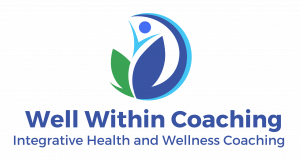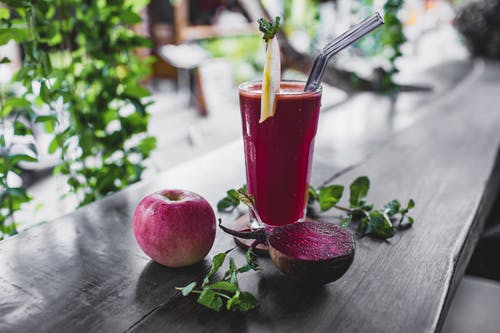7 Health & Wellness Habits That Can Change Your Life
How can I make the claim that these habits can change your life? Because they changed mine and I’m definitely not special.
We are all unique and what works for some will not work for all. That said, these surprising strategies are simple and actionable. Read on to learn practical ways to customize them to fit into your own life.
- Daily meditation: How it changed my life: When I first learned to meditate, I constantly felt restless and wanted to jump right out of my skin. Now? Twice a day, every day for 20-30 minutes. I could dedicate a whole “how to” to this one, but for now, what inspired me most was consistency and support. I enjoyed meditating with others; the community of a teacher and other students made all the difference until I was able to integrate the habit. It has led to greater resilience, increased stress tolerance, reduced pain, and more.
How to make it your own: Start with 5 minutes. Heck, start with one. Consistency is far more important than duration when it comes to meditation and other mindfulness practices. The goal is not to empty the mind or rid your mind of thoughts. It is to notice that the thoughts, sensations, images, or feelings are there, and not get captivated by them. When you do notice your mind is elsewhere, gently bring your awareness back to your breath or body, or the voice if you are using a guided practice. - Short workouts for home: How it changed my life: There was a time I loved going to the gym and went most days. But then, so much in my life changed and it just wasn’t happening. I would feel so much pressure to get to the gym and had all kinds of not-so-kind words for myself when I didn’t. Now, I either take a long walk or do a workout at home, mostly following a YouTube video. There are literally thousands to choose from. I can customize to my interests, fitness level, timeframe, and a key bonus, save money. I end up moving more and doing so in a way that is more aligned with my body’s needs.
How to make it your own: Adopt a mindset of experimentation. It’s great to have a back-up in case your gym or other place you exercise is not available (2020!) or if it’s 23 degrees out. If you find the idea of a gym or studio intimidating, or if you’re just getting started, consider a beginner level yoga class, indoor walking workout or online Zumba class. If you’ve been working out for a while, or feel more adventurous, try a HIIT or Tabata workout. Bottom-line: choose activities that you enjoy and look forward to. Consult with your healthcare provider before making any changes to your fitness regimen. - Drinking more water: How it changed my life: For most people, drinking more than half their body weight in water is not at all necessary. But for me, when I felt inflamed, achy, or fatigued, drinking that much water was a game changer. I notice the difference when I am hydrated to this level. I feel lighter, more energized and have increased mobility. My digestive system feels better, and I am more able to focus.
How to make it your own: Start with where you are and aim to increase slowly. Most folks are somewhat dehydrated, but only hydrate to a level that is appropriate for you; there is such a thing as overhydration. Set out a large glass bottle or stainless-steel bottle of water on your bathroom counter the night before and aim to drink it before you get to your desk. Have one there too and sip throughout the day. Pro-tip: drink most of your water between meals, not during so as not to dilute the stomach acids needed to break down your food. If you dampen your digestive fire, this can lead to trouble. If you don’t like the taste of plain water, add citrus slices, mashed berries, or fresh herbs such as basil or mint. - Slowing down: How it changed my life: I used to race around, constantly feeling rushed, late, stressed and frustrated. It had become a default way of being. Mere awareness was not enough to slow down long enough to recognize the detrimental impact. For many, myself included, the pandemic, as challenging as it has been, has given us the opportunity to pause (more like a screeching halt!) I continue to practice pacing and feel infinitely less stressed without racing through life.
How to make it your own: Notice any tendencies you may have to rush or race around. Experiment with what it feels like to reduce your pace or even pause. You don’t need to lose your edge or be any less productive than you would like. The shift can be subtle. Sit in your car for two minutes when you arrive at your destination. When you plan your week, block unscheduled space in your calendar, even if just for 15 minutes a day. Leave yourself 30-40% more time to complete a task than you think it will take. Become present and try monotasking, rather than trying to do multiple activities at one. Being more present can change your own perspective, as well as reduce stress levels, and help you feel more connected to your loved ones. - Using clean cosmetics and personal care products: How it changed my life: For years, well into my adulthood, I had highly reactive skin, which meant eczema, acne, rashes and dryness. Using non-toxic skincare, cosmetics and other personal care products changed nearly all of that. Not only did I eliminate most of my skin woes, but protecting skin from chemicals, means protecting the rest of the body too. This is important not just for skin health, but for the health of all the systems in the body, hormonal, endocrine, metabolic, lymphatic, respiratory, digestive, nervous, reproductive and beyond.
How to make it your own: There are thousands of chemicals we are exposed to every day from the environment, air, water, food, and even own homes. In addition to changing the food you eat and the water you drink, gradually swapping out your personal care products is an easy way to reduce the chemical burden of your body. I use the Environmental Working Group’s Skin Deep database to find products that are “EWG Verified”. Having this seal means the most stringent standards were applied to protect consumers and deliver a product that is safe and healthy. To keep it simple and cost effective, start with the ones you use most often. When you’re done with an item, replace it with a healthier alternative. - Ditching dieting: How it changed my life: Whether you call it yoyo dieting or weight cycling, the restrict-overeat pattern is bad for both physical and mental health. Did you know 97% of diets fail? Now, I eat in a way that is nourishing and non-dogmatic. This is one that takes ongoing attention and I’m not always a mindful eater. But when I am, my digestion is better, I feel more satisfied, and feel a greater sense of peace with food and body.
How to make it your own: Thankfully, there is more awareness these days about the pitfalls of diet culture. At the same time, there is enormous pressure to look a certain way and to “be healthy”. Certainly, listen to your doctor when it comes to a specialized regimen for your health. AND consider adopting a mindset that removes the judgment, stigma, confusion and restriction often associated with a dieting mentality. This is a topic with numerous complex layers. Essentially, start by increasing your awareness about how you talk to yourself about what you eat and the role food plays in your life. Learn more about mindful eating and intuitive eating to see if these approaches are right for you. Not all disordered eating leads to a diagnosable eating disorder which is a mental health condition. However, if you know or suspect you have an eating disorder, this can best be treated by a licensed professional. - Increased Connection: How it changed my life: Isolation has been demonstrated to adversely affect mental and physical health and longevity. Connection is not just to others but to one’s self, our common humanity, and to something greater. Increasing connection to myself, others and the universe, enabled me to be more open-minded, less self-critical, become more authentic, and develop my spirituality. Even though I’m an introvert, I make it a point to reach out to friends, family, and colleagues regularly to reconnect. Especially in this time of social distancing and physical separation, creating time for intentional connections is more important than ever.
How to make it your own: Reach out to one or two friends each week to plan a call or safe gathering, depending on the guidelines in your city or country. Consider whether you prefer small groups or one-to-one connections. Join a meetup or networking group centered around common interests. If it’s challenging for you to be with your own thoughts or enjoy your own company, practice getting comfortable spending time solo. Spending time in nature or making it a habit to look up at the stars or moon, can remind you you’re not alone and are part of the larger world and universe.
Start with one or two ideas that appeal to you most. Experiment with what works best for you and give yourself credit for every increment of change in the direction of your goals. With openness and curiosity, notice how you feel. Adopt a win-or-learn mindset; there’s no such thing as failure if you’re taking action.
If you’re overwhelmed and struggling to integrate new health and wellness habits or have a hard time making them stick, you’re in the perfect place! Reach out to schedule your FREE Clarity Call. Tell me about the habits you’d like to upgrade. Learn more about how working with a health coach can help you finally integrate habits that last.
Disclaimer: This post is for informational purposes only. It does not constitute medical advice, or replace treatment or intervention by a qualified medical or mental health professional.





